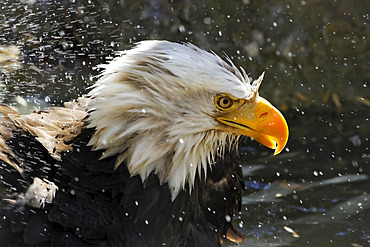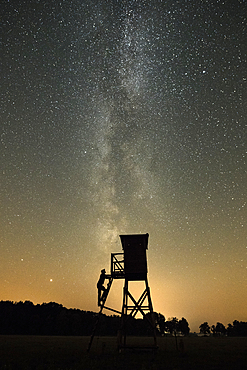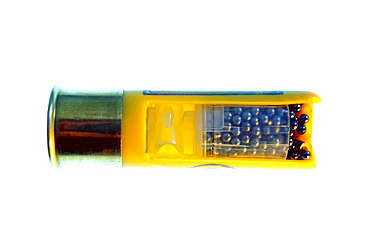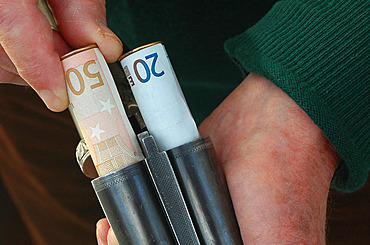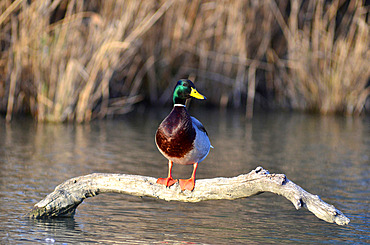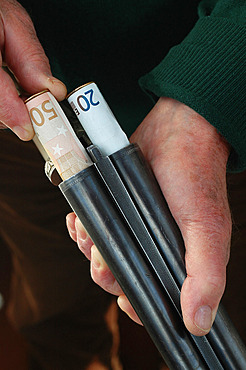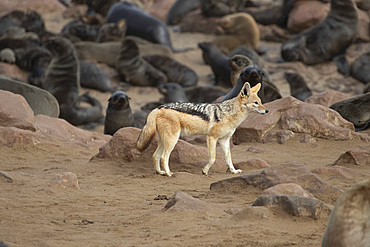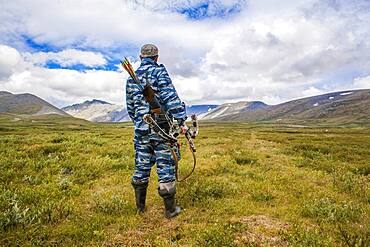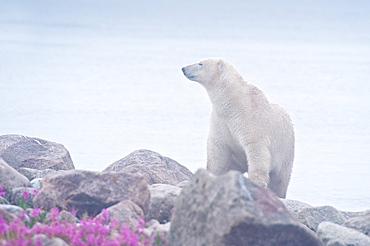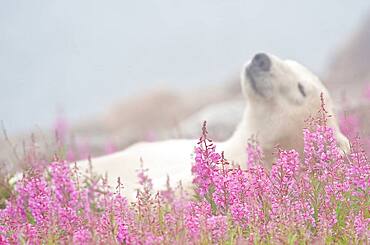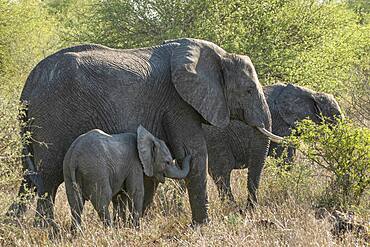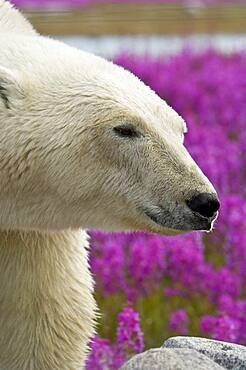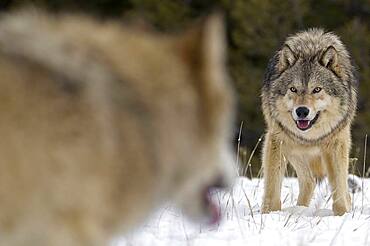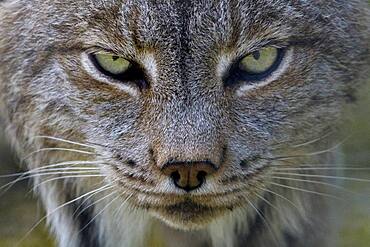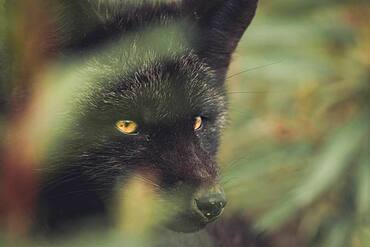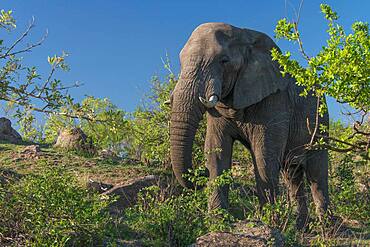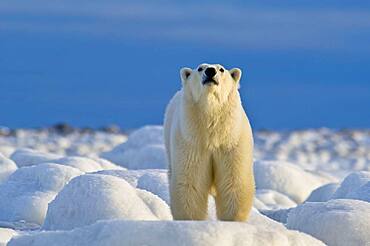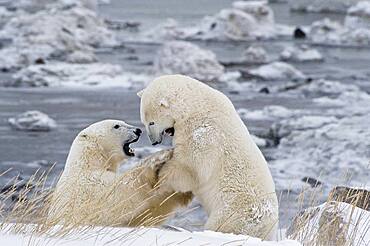Recent searches
Loading...
1116-51434 - Coyote (Canis latrans) leaps in the air while hunting mice in Yellowstone National Park; Wyoming, United States of America
1116-51627 - Hunters with camouflage clothing and rifle looking out with binoculars; Denver, Colorado, United States of America
1116-51643 - Bald eagle (Haliaeetus leucocephalus) with splashes of water; Denver, Colorado, United States of America
1116-50860 - Bear (Ursus arctos) viewing at Hallo Bay Camp. A sow and her two cubs hunt for clams while awaiting the arrival of salmon to local streams; Alaska, United States of America
1113-105538 - Milky Way over the Spreewald in front of Jägerstand silhouette, Germany, Brandenburg, Spreewald
860-290375 - France. Hunting. The European commission has adopted in january 2021 a ban on using lead 100m around any wetland in Europe. So far in France, the ban is only 30m. In the future, the lead will be totally banned as 6000 tons of lead is put into nature by hunters every year. There is already new anmunitions with zinc, steel, tungsten and bismuth.
860-290377 - France. Hunting. The European commission has adopted in january 2021 a ban on using lead 100m around any wetland in Europe. So far in France, the ban is only 30m. In the future, the lead will be totally banned as 6000 tons of lead is put into nature by hunters every year causing death of thousands of birds (here a mallard) eating lead balls.
860-290374 - France. Hunting. Lead balls. The European commission has adopted in january 2021 a ban on using lead 100m around any wetland in Europe. So far in France, the ban is only 30m. In the future, the lead will be totally banned as 6000 tons of lead is put into nature by hunters every year. There is already new anmunitions with zinc, steel, tungsten and bismuth.
860-290371 - France. Hunting. The European commission has adopted in january 2021 a ban on using lead 100m around any wetland in Europe. In the future, the lead will be totally banned as 6000 tons of lead is put into nature by hunters every year. There is already new anmunitions with zinc, steel, tungsten and bismuth but much more expansive than lead.
860-290376 - France. Hunting. The European commission has adopted in january 2021 a ban on using lead 100m around any wetland in Europe. So far in France, the ban is only 30m. In the future, the lead will be totally banned as 6000 tons of lead is put into nature by hunters every year causing death of thousands of birds (here a mallard) eating lead balls.
860-290373 - France. Hunting. The European commission has adopted in january 2021 a ban on using lead 100m around any wetland in Europe. So far in France, the ban is only 30m. In the future, the lead will be totally banned as 6000 tons of lead is put into nature by hunters every year. There is already new anmunitions with zinc, steel, tungsten and bismuth.
860-290372 - France. Hunting. The European commission has adopted in january 2021 a ban on using lead 100m around any wetland in Europe. In the future, the lead will be totally banned as 6000 tons of lead is put into nature by hunters every year. There is already new anmunitions with zinc, steel, tungsten and bismuth but much more expansive than lead.
860-290368 - France. Hunting. The European commission has adopted in january 2021 a ban on using lead 100m around any wetland in Europe. So far in France, the ban is only 30m. In the future, the lead will be totally banned as 6000 tons of lead is put into nature by hunters every year. There is already new anmunitions with zinc, steel, tungsten and bismuth.
1350-3394 - Golden jackal (canis aureus) hunting seals in Cape Cross, Namibia
1350-3388 - African wild dogs (lycaon pictus) in Erindi private game reserve, Namibia
1178-34989 - Mari hunter carrying crossbow in remote field
1178-35017 - Mari man with gun overlooking rural landscape
1178-35015 - Mari man with gun climbing forest hill
1350-286 - Polar Bear (Ursa maritimus) in fireweed (Epilobium angustifolium) on an island off the sub-arctic coast of Hudson Bay, Churchill, Manitoba, Canada. Bears come to spend the summer loafing on the island and looking for a careless seal or dead whale to wash up. Global warming has shortened their winter so they are increasingly looking for food in the summer.
1350-277 - Polar Bear (Ursa maritimus) in fireweed (Epilobium angustifolium)
1350-304 - Mountain Lions in the mountains of Montana, United States
1350-312 - Mountain Lions in the mountains of Montana, United States
1350-267 - Black phase Gray Wolf (Canis lupus) Grey Wolf Portrait in fresh snow, Montana, USA.
1350-265 - Polar Bear (Ursa maritimus) in fireweed (Epilobium angustifolium) on an island off the sub-arctic coast of Hudson Bay, Churchill, Manitoba, Canada.
1350-280 - Polar Bear (Ursa maritimus) in fireweed (Epilobium angustifolium) on an island off the sub-arctic coast of Hudson Bay, Churchill, Manitoba, Canada. Bears come to spend the summer loafing on the island and looking for a careless seal or dead whale to wash up. Global warming has shortened their winter so they are increasingly looking for food in the summer.
1350-256 - Polar Bear (Ursa maritimus) in fireweed (Epilobium angustifolium) on an island off the sub-arctic coast of Hudson Bay, Churchill, Manitoba, Canada. Bears come to spend the summer loafing on the island and looking for a careless seal or dead whale to wash up. Global warming has shortened their winter so they are increasingly looking for food in the summer.
1350-274 - Polar Bear (Ursa maritimus) on sub-arctic Hudson Bay ice and snow, Churchill, MB, Canada
1350-641 - Somo kind of wolf spider, they are robust and agile hunters with good eyesight. They live mostly solitary lives and hunt alone. Some are opportunistic hunters pouncing upon prey as they find it or even chasing it over short distances. Some will wait for passing prey in or near the mouth of a burrow.
1350-264 - Polar Bear (Ursa maritimus) on sub-arctic Hudson Bay ice and snow, Churchill, MB, Canada
1350-244 - Polar Bear (Ursa maritimus) in fireweed (Epilobium angustifolium) on an island off the sub-arctic coast of Hudson Bay, Churchill, Manitoba, Canada. Bears come to spend the summer loafing on the island and looking for a careless seal or dead whale to wash up. Global warming has shortened their winter so they are increasingly looking for food in the summer.
1350-328 - Arctic Fox (Vulpes lagopus) pair courtship, Hudson Bay, Canada.
1350-246 - Polar Bear (Ursa maritimus) on sub-arctic Hudson Bay ice and snow, Churchill, MB, Canada
1350-284 - Polar Bear (Ursa maritimus) on sub-arctic Hudson Bay ice and snow, Churchill, MB, Canada
1350-309 - Mountain Lions in the mountains of Montana, United States
1350-275 - Polar Bear (Ursa maritimus) on sub-arctic Hudson Bay ice and snow, Churchill, MB, Canada
1350-182 - Baby African Elephant (Loxodonta africana) in Kruger National Park, South Africa leans on it's mother for comfort and safety support.
1350-258 - Polar Bear (Ursa maritimus) in fireweed (Epilobium angustifolium)
1350-314 - Male Gray Wolf (Canis lupus) Grey Wolf leaping from creek bank in fresh falling snow, Montana, USA.
1350-293 - Arctic Fox (Vulpes lagopus) at Seal River Lodge, coastal Hudson Bay, Churchill, MB, Canada
1350-301 - Mountain Lions in the mountains of Montana, United States
1350-248 - Mountain Lions in the mountains of Montana, United States
1350-263 - Mountain Lions in the mountains of Montana, United States
1350-1933 - Portrait of Red Fox in Yukon Territory, Canada
1350-307 - Male Gray Wolf stare (Canis lupus) Grey Wolf Portrait peeking out from red osier dogwood (Cornus sericea), Montana, USA.
1350-276 - Mountain Lions in the mountains of Montana, United States
1350-281 - Mountain Lions in the mountains of Montana, United States
1350-282 - Mountain Lions in the mountains of Montana, United States
1350-285 - Alpha male Gray Wolf (Canis lupus) Grey Wolf confrontation with beta male wolf in fresh winter snow, Montana, USA.
1350-323 - Digital composite of Gray Wolf (Canis lupus) silhouette Grey Wolf howling at the full moon in Monument Valley, Arizona, USA.
1350-247 - Polar Bear (Ursa maritimus) in fireweed (Epilobium angustifolium)
1350-1923 - A young red fox stares at the camera from among the fireweed, Yukon Territory, Canada
1350-294 - Polar Bear (Ursa maritimus) on sub-arctic Hudson Bay ice and snow, Churchill, MB, Canada
1350-320 - Polar Bear (Ursa maritimus) in fireweed (Epilobium angustifolium) on an island off the sub-arctic coast of Hudson Bay, Churchill, Manitoba, Canada.
1350-269 - Mountain Lions in the mountains of Montana, United States
1350-322 - Canadian Lynx (Lynx Canadensis) with wary stare, Assiniboine Park Zoo, Winnipeg, MB, Canada
1350-1876 - A black colored red fox baby (Vulpus vulpus) on the hunt. Yukon Territory, Canada.
1350-675 - Crab spiders do not build webs to trap prey, though all of them produce silk for drop lines and sundry reproductive purposes; some are wandering hunters and the most widely known are ambush predators.
1350-1930 - A red fox sits in the warming sun with eyes closed, Yukon Territory, Canada
1350-308 - Mountain Lions in the mountains of Montana, United States
1350-1932 - Portrait of Red Fox in Yukon Territory, Canada
1350-292 - Polar Bear (Ursa maritimus) on sub-arctic Hudson Bay ice and snow, Churchill, MB, Canada
1350-181 - African Elephant (Loxodonta africana) in Kruger National Park, South Africa, feeding in a relaxed pose beside the road.
1350-296 - Mountain Lions in the mountains of Montana, United States
1350-291 - Male Gray Wolf (Canis lupus) Grey Wolf Portrait in fresh falling snow, Montana, USA.
1350-295 - Mountain Lions in the mountains of Montana, United States
1350-318 - Polar Bear (Ursa maritimus) on sea ice off the sub-arctic coast of Hudson Bay, Churchill, Manitoba, Canada. Bears come to the coast of Hudson Bay in Fall waiting for the ice to freeze, and looking for a careless seal or dead whale to wash up. Global warming has shortened their winter so they are increasingly anxious as they wait for winter. While they wait, they engage in frequent wrestling matches to determine a mating hierarchy for the breeding season in March and April, and regularly check on the ice to see if it will carry them out to sea.
1350-272 - Alpha female Gray Wolf (Canis lupus) Grey Wolf with subordinate males, Montana, USA.
1350-287 - Polar Bear (Ursa maritimus) on sub-arctic Hudson Bay ice and snow, Churchill, MB, Canada
1350-268 - Polar Bear (Ursa maritimus) on sub-arctic Hudson Bay ice and snow, Churchill, MB, Canada
1350-298 - Mountain Lions in the mountains of Montana, United States
1350-289 - Polar Bear (Ursa maritimus) on sub-arctic Hudson Bay ice and snow, Churchill, MB, Canada
1350-250 - Polar Bear (Ursa maritimus) in fireweed (Epilobium angustifolium)
1350-303 - Mountain Lions in the mountains of Montana, United States
1350-255 - Polar Bear (Ursa maritimus) on sub-arctic Hudson Bay ice and snow, Churchill, MB, Canada
1350-1913 - Red fox looking for prey to hunt, Yukon Territory, Canada
1350-1926 - A red fox sneaks through the willows focused on his prey, Yukon Territory
1350-266 - Polar Bear (Ursa maritimus) on sub-arctic Hudson Bay ice and snow, Churchill, MB, Canada
1350-283 - Beta male Gray Wolf (Canis lupus) Grey Wolf fending off alpha female advances in fresh winter snow, Montana, USA.
1350-317 - Mountain Lions in the mountains of Montana, United States
1350-319 - Polar Bear (Ursa maritimus) in fireweed (Epilobium angustifolium) on an island off the sub-arctic coast of Hudson Bay, Churchill, Manitoba, Canada.
1350-253 - Polar Bear (Ursa maritimus) on sub-arctic Hudson Bay ice and snow, Churchill, MB, Canada
1350-305 - Mountain Lions in the mountains of Montana, United States
1350-315 - Mountain Lions in the mountains of Montana, United States
1350-300 - Mountain Lions in the mountains of Montana, United States
1350-325 - Arctic Fox (Vulpes lagopus) portrait, Hudson Bay, Canada.
1350-657 - A small jumping spider; these spiders make great hunters, using their very agile jumps giving their preys no time to react
1350-245 - Polar Bear (Ursa maritimus) in fireweed (Epilobium angustifolium)
1350-321 - Mountain Lions in the mountains of Montana, United States
1350-261 - Polar Bear (Ursa maritimus) on sub-arctic Hudson Bay ice and snow, Churchill, MB, Canada
1350-310 - Male Gray Wolf stare (Canis lupus) Grey Wolf Portrait in fresh falling snow, Montana, USA.
1350-1880 - A black colored red fox baby (Vulpus vulpus) on the hunt. Yukon Territory, Canada
1350-254 - Polar Bear (Ursa maritimus) on sub-arctic Hudson Bay ice and snow, Churchill, MB, Canada
1350-279 - Polar Bear (Ursa maritimus) on sub-arctic Hudson Bay ice and snow, Churchill, MB, Canada
1350-326 - Mountain Lions in the mountains of Montana, United States
1350-1931 - A red fox enjoys the warming rays of the evening sun, Yukon Territory, Canada


